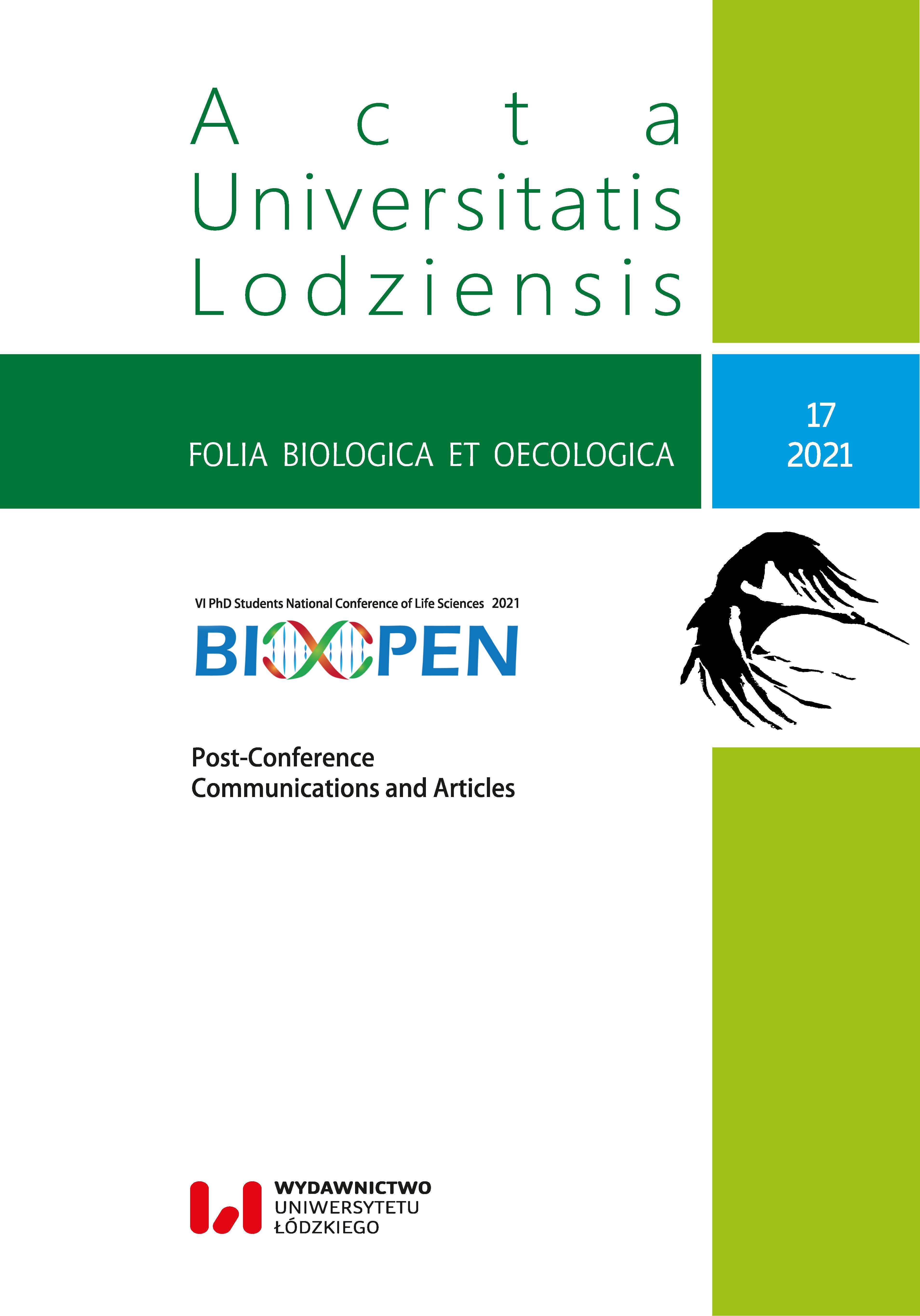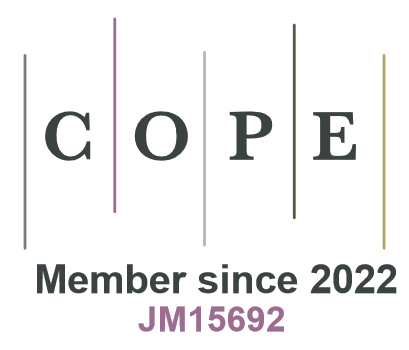A brief dive into the phenomenon of cisplatin resistance in non-small-cell lung cancer
DOI:
https://doi.org/10.18778/1730-2366.16.12Keywords:
non-small-cell lung cancer, cisplatin, cisplatin resistanceAbstract
Lung cancer is one of the most lethal types of cancer due to a lack of proper treatment. The rare presence of molecular therapy targets forces the use of platinum-based drugs. Cisplatin, approved by the USA as an anticancer therapy in the 1970s, is still one of the most prominent therapies against lung cancer. Unfortunately, the biggest limitation of cisplatin-based therapy is the development of cisplatin resistance. Cancer cells overcome the vast DNA damage caused by the drug in a variety of ways such as detoxication and extracellular transport of the drug, enhanced repair mechanisms, omitting apoptosis and epigenetic alterations. Chemotherapy resistance is an issue that so far cannot be dealt with. Nevertheless, better understanding of the molecular pathways behind cisplatin resistance brings hope for better therapy outcomes in lung cancer patients.
Downloads
References
Arora, S., Kothandapani, A., Tillison, K., Kalman-Maltese, V., Patrick, S.M. 2010. Downregulation of XPF-ERCC1 enhances cisplatin efficacy in cancer cells. DNA Repair (Amst), 9: 745–753.
Google Scholar
DOI: https://doi.org/10.1016/j.dnarep.2010.03.010
Dela Cruz, C.S., Tanoue, L.T., Matthay, R.A. 2011. Lung cancer: Epidemiology, etiology, and prevention. Clinics in Chest Medicine, 32(4): 605–644.
Google Scholar
DOI: https://doi.org/10.1016/j.ccm.2011.09.001
Fadejeva, I., Olschewski, H., Hrzenjak, A. 2017. MicroRNAs as regulators of cisplatin-resistance in non-small cell lung carcinomas. Oncotarget, 8(70): 115754–115773.
Google Scholar
DOI: https://doi.org/10.18632/oncotarget.22975
Fennell, D.A., Summers, Y., Cadranel, J., Benepal, T., Christoph, D.C., Lal, R., Das, M., Maxwell, F., Visseren-Grul, C., Ferry, D. 2016. Cisplatin in the modern era: The backbone of first-line chemotherapy for non-small cell lung cancer. Cancer Treatment Reviews, 44: 42–50.
Google Scholar
DOI: https://doi.org/10.1016/j.ctrv.2016.01.003
Galluzzi, L., Senovilla, L., Vitale, I., Michels, J., Martins, I., Kepp, O., Castedo, M., Kroemer, G. 2012. Molecular mechanisms of cisplatin resistance. Oncogene, 31(15): 1869–1883.
Google Scholar
DOI: https://doi.org/10.1038/onc.2011.384
Gąsiorkiewicz, B.M., Koczurkiewicz-Adamczyk, P., Piska, K., Pękala, E. 2021. Autophagy modulating agents as chemosensitizers for cisplatin therapy in cancer. Investigation New Drugs, 39: 538–563.
Google Scholar
DOI: https://doi.org/10.1007/s10637-020-01032-y
He, Y., Chen, D., Yi, Y., Zeng, S., Liu, S., Li, P., Xie, H., Yu, P., Jiang, G., Liu, H. 2020. Histone deacetylase inhibitor sensitizes ERCC1-high non-small-cell lung cancer cells to cisplatin via regulating miR-149. Molecular Therapy – Oncolytics, 17: 448–459.
Google Scholar
DOI: https://doi.org/10.1016/j.omto.2020.05.001
Hu, C., Zhang, M., Moses, N., Hu, C.-L., Polin, L., Chen, W., Jang, H., Heyza, J., Malysa, A., Caruso, J.A., Xiang, S., Patrick, S., Stemmer, P., Lou, Z., Bai, W., Wang, C., Bepler, G., Zhang, X.M. 2020. The USP10-HDAC6 axis confers cisplatin resistance in non-small cel lung cancer lacking wild-type p53. Cell Death & Disease, 11: 1–18.
Google Scholar
DOI: https://doi.org/10.1038/s41419-020-2519-8
Lan, D., Wang, L., He, R., Ma, J., Bin, Y., Chi, X., Chen, G., Cai, Z. 2018. Exogenous glutathione contributes to cisplatin resistance in lung cancer A549 cells. American Journal of Translational Research, 10: 1295–1309.
Google Scholar
O’Byrne, K.J., Barr, M.P., Gray, S.G. 2011. The role of epigenetics in resistance to cisplatin chemotherapy in lung cancer. Cancers (Basel), 3(1): 1426–1453.
Google Scholar
DOI: https://doi.org/10.3390/cancers3011426
Peklak-Scott, C., Smitherman, P.K., Townsend, A.J., Morrow, C.S. 2008. Role of glutathione S-transferase P1-1 in the cellular detoxification of cisplatin. Molecular Cancer Therapeutics, 7(10): 3247–3255.
Google Scholar
DOI: https://doi.org/10.1158/1535-7163.MCT-08-0250
Pizzorno, J. 2014. Glutathione! Integrative Medicine (Encinitas), 13: 8–12.
Google Scholar
Rocha, C.R.R., Silva, M.M., Quinet, A., Cabral-Neto, J.B., Menck, C.F.M. 2018. DNA repair pathways and cisplatin resistance: An intimate relationship. Clinics (Sao Paulo), 73(Suppl 1): e478s.
Google Scholar
DOI: https://doi.org/10.6061/clinics/2018/e478s
Siegel, R.L., Miller, K.D., Fuchs, H.E., Jemal, A. 2021. Cancer statistics, 2021. C.A. Cancer Journal of Clinicians, 71: 7–33.
Google Scholar
DOI: https://doi.org/10.3322/caac.21654
Sun, D.M., Tang, B.F., Li, Z.X., Guo, H.B., Cheng, J.L., Song, P.P., Zhao, X. 2018. miR-29c reduces the cisplatin resistance of non-small cell lung cancer cells by negatively regulating the PI3K/Akt pathway. Scientific Reports, 8: 1–9.
Google Scholar
DOI: https://doi.org/10.1038/s41598-018-26381-w
Wishart, D.S., Feunang, Y.D., Guo, A.C., Lo, E.J., Marcu, A., Grant, J.R., Sajed, T., Johnson, D., Li, C., Sayeeda, Z., Assempour, N., Iynkkaran, I., Liu, Y., Maciejewski, A., Gale, N., Wilson, A., Chin, L., Cummings, R., Le, D., Pon, A., Knox, C., Wilson, M. 2018. DrugBank 5.0: A major update to the DrugBank database for 2018. Nucleic Acids Research, 46: D1074–D1082.
Google Scholar
DOI: https://doi.org/10.1093/nar/gkx1037
Wu, H.M., Jiang, Z.F., Ding, P.S., Shao, L.J., Liu, R.Y. 2015. Hypoxia-induced autophagy mediates cisplatin resistance in lung cancer cells. Scientific Reports, 5: 12291.
Google Scholar
DOI: https://doi.org/10.1038/srep12291
Yun, C.W., Lee, S.H. 2018. The roles of autophagy in cancer. International Journal of Molecular Sciences, 19(11): 3466.
Google Scholar
DOI: https://doi.org/10.3390/ijms19113466
Zappa, C., Mousa S.A. 2016. Non-small cell lung cancer: Current treatment and future advances. Translational Lung Cancer Research, 5: 288–300.
Google Scholar
DOI: https://doi.org/10.21037/tlcr.2016.06.07
Downloads
Published
How to Cite
Issue
Section
License

This work is licensed under a Creative Commons Attribution-NonCommercial-NoDerivatives 4.0 International License.









